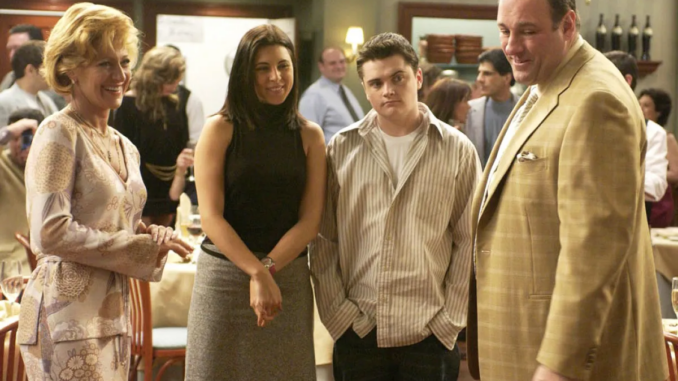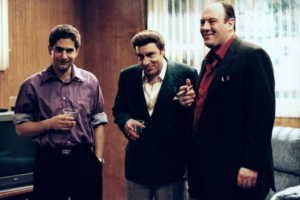
The Sopranos creator David Chase and star Steven Van Zandt remember how James Gandolfini tried to regularly quit the show. Widely considered as one of the greatest television shows ever, The Sopranos followed Gandolfini as the angst-ridden mobster Tony Soprano who, struggling to juggle his personal and professional life, reluctantly agreed to attend therapy. Other than the late great Gandolfini, who passed away in 2013, The Sopranos cast also included Van Zandt as Tony’s consigliere Silvio Dante, and Lorraine Bracco as Tony’s psychiatrist, Dr. Melfi.
During a recent roundtable reunion for Empire magazine, Van Zandt and Chase remembered how Gandolfini tried to regularly quit The Sopranos. According to the actor, Gandolfini “quit the show basically every day,” citing the long hours and “heavy scenes.” The show’s creator also remembered one conversation with Gandolfini when he wished he had become a plumber instead. Read their full comments below:
Van Zandt : He would also quit the show basically every day. [Laughs] In TV, you work from 6am ’til 10pm. He was coming from movies, filming two pages a day or whatever. And here we were, doing five, six or seven – four of which would be him and Lorraine in Dr Melfi’s office. Heavy scenes. So he was often like, “I can’t do this. I cannot do this.”
Chase : I was requested to meet him one time at Pier 40 by the Hudson River in the middle of the day when he was going through his “I want to quit” thing. And he told me that day, “You know what I should have been? I should have been a plumber. That’s what I should have been. A plumber.” I had several of those conversations with him.

Why Playing Tony Soprano Was So Difficult For James Gandolfini
As Van Zandt mentions, the long hours were one of the major reasons why playing Tony Soprano was so difficult for James Gandolfini. Before the HBO show, he mostly acted in feature films like True Romance, Crimson Tide, Get Shorty, and A Civil Action. As opposed to movies, which generally film anywhere from two to eight pages a day, The Sopranos shot as many as seven pages, including Tony’s emotionally intense therapy scenes with Dr. Melfi.
Another reason playing Tony was difficult for Gandolfini, as Van Zandt also touches on, was the emotional intensity of the role. Tony was a deeply complex character, grappling with his roles as a mob boss, husband, father, and individual struggling with mental health issues. Playing such a multifaceted character required Gandolfini to delve deep into the darkest depths of the human psyche for long hours every day. Over the course of the series, Gandolfini sunk further and further into the role of Tony Soprano, which seemed to take a physical toll on him.
Although the transition from film to TV was difficult for Gandolfini, his performance as Tony Soprano is widely considered as one of the greatest and most influential in the history of television. The performance earned him six Emmy nominations and three wins, and is credited with paving the way for more great television antiheroes like Walter White (Bryan Cranston). Although Gandolfini’s desire to quit The Sopranos is understood, thankfully he didn’t, since television would have been robbed of one of its greatest and most important performances.
